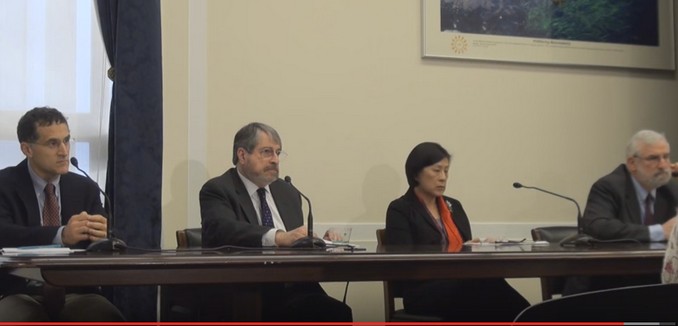The American Historical Association (AHA) has once again overwhelmingly voted down an anti-Israel resolution at its annual meeting, The Times of Israel reported on Sunday.
On Saturday, a resolution that accused Israel of limiting Palestinian academic freedom and called on the AHA to “monitor Israeli actions” was rejected by a vote of 111 to 50, confirmed AHA executive director James Grossman.
The resolution, which had 126 signatories, was brought by Historians Against the War, a group that has publicly endorsed the Boycott, Divestment and Sanctions (BDS) campaign against Israel and often advocates for its agenda.
Jeffrey Herf, an AHA member and history professor at the University of Maryland, College Park, explained that his colleagues “understood that this was part of a political campaign and an attempt to use the American Historical Association for political purposes, and they rejected that.” Herf added, “The members of the AHA have very high standards. They were not going to vote for a resolution like this that was making factual assertions that they couldn’t verify themselves.”
Herf’s sentiments were echoed by Dr. Roger Horowitz, a director at the Hagley Museum and Library who told Inside Higher Education that he felt “anger” towards Historians Against the War for introducing a “terrible resolution” that was based on “fiction.” According to Horowitz, the group failed by “singling out Israel and not providing a proper frame for understanding the crisis in the Middle East and the crisis of opportunity for people in these countries. … It’s just intellectually bankrupt to say that this will be solved by a resolution criticizing Israel.”
David Greenberg, associate professor of history at Rutgers University at New Brunswick, added that adopting a resolution that was biased against Israel would hurt the AHA’s reputation, while Richard Golden, a professor of history at the University of North Texas, asked, “Why are we considering a resolution that has nothing to do with the great aims of this organization?” Golden called the resolution “condescending” towards Palestinians as it did not hold them accountable for their own actions.
Prof. William Jacobson, founder of the Legal Insurrection blog and an expert on the BDS movement in academia, wrote that the AHA decision was a “stunning defeat” for BDS that proves “that historians as a group take their scholarship and academic standing seriously.” In contrast, he argued, organizations like the American Studies Association and National Women’s Studies Association see themselves “as political organizations where the scholarship … is in the service of the politics.” The result of politicizing an academic discipline, Jacobson observed, is that “once serious subjects and departments” are turned “into political engines,” leading to a situation where even top scholars can have their reputations damaged.
Last year, an attempt by the same group of anti-Israel historians to suspend the AHA’s bylaws in order to introduce anti-Israel resolutions was rejected by a vote of 144 – 51.
Many critics of the BDS movement have accused it of being discriminatory in tone and intention, and pointed out that its leaders have publicly affirmed that they seek Israel’s destruction. BDS co-founder Omar Barghouti, a hard-line opponent of the two state solution, said in 2014 that Palestinians have a right to “resistance by any means, including armed resistance,” while leading activist As’ad Abu Khalil acknowledged in 2012 that “the real aim of BDS is to bring down the state of Israel.”




